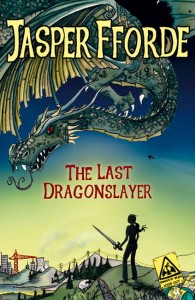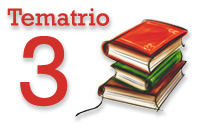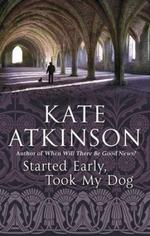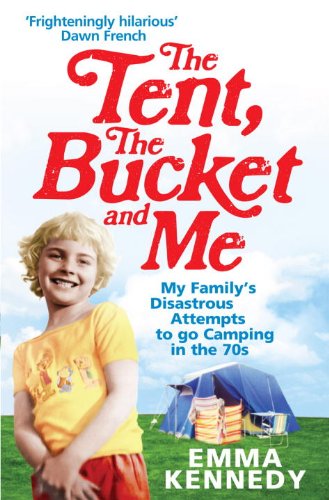
As I said in Smakebit på søndag, when I’d read the first chapter of The Last Dragonslayer on Friday, far too late in the evening already, I didn’t want to put it down, and in other circumstances I probably wouldn’t have. As it was it was Sunday before I finished. And it is a compelling story, with Jennifer Strange as a most compelling heroine. But while I liked it, I really, really liked it, I still felt it fell a little short of perfection (unlike Shades of Gray which really IS perfection).
For while the story is compelling, I felt it lacked something, a little drive, perhaps? And I should have liked to see more of Tiger Prawn, a most worthy sidekick. And I should have liked to see more of the wizards, too, even the ones – or perhaps especially the ones – with a less than sunny personality. And I really want more quarkbeast. Charming creatures, they are.
Now I realise that this is the first book in an intended series, so that hopefully I WILL see more of these characters, but though I adore series, even long series, I still feel that at least the first volume ought to be able to stand on its own two feet. It should leave you wanting more, yes, of course it should, but there is a difference here. Comparing, again, with Shades of Gray, which had me craving more the moment I closed the book, but which felt very much like a complete whole, The Last Dragonslayer leaves me wanting more because the book itself feels somewhat incomplete.
Perhaps it’s because it’s written for a younger market? I don’t know. I’m not sure that’s an excuse, though. Why should younger readers not want complete books?
On the whole, though, The Last Dragonslayer is better than most books out there. I could compare it to almost any book and it would come up trumps, I just know Fforde can do better, and so I am a little disappointed. A very little. I’m still preordering The Song of the Quarkbeast, because, well, complaining that I want more and then not grabbing at it with both hands when I’m offered more would just be stupid, right?
On a side note: Why, oh why have they radically changed cover designs between volumes 1 and 2?


 Having gotten my hands on Started Early, Took My Dog, I obviously had to start it as soon as possible.
Having gotten my hands on Started Early, Took My Dog, I obviously had to start it as soon as possible. The Tent, the Bucket and Me was an obvious buy when I found it in London a year and a half ago. For some reason it’s been languishing on a shelf since then, until it grabbed my attention when I was looking for a book to bring on the aforementioned long weekend in Dublin. It turned out to be a good and a bad choice.
The Tent, the Bucket and Me was an obvious buy when I found it in London a year and a half ago. For some reason it’s been languishing on a shelf since then, until it grabbed my attention when I was looking for a book to bring on the aforementioned long weekend in Dublin. It turned out to be a good and a bad choice.